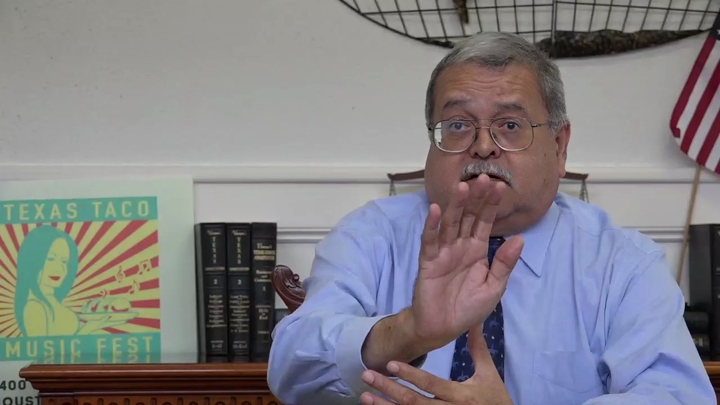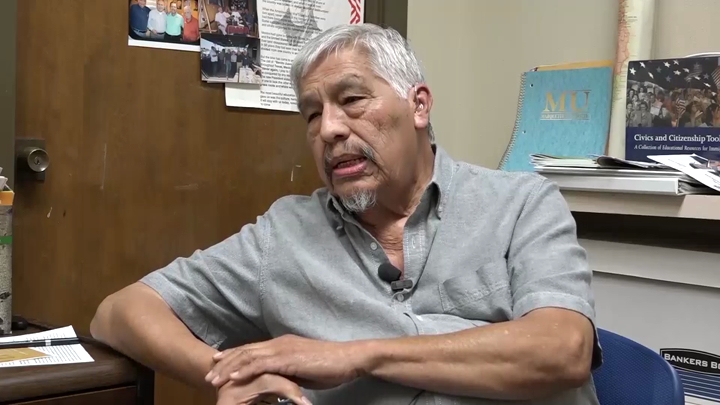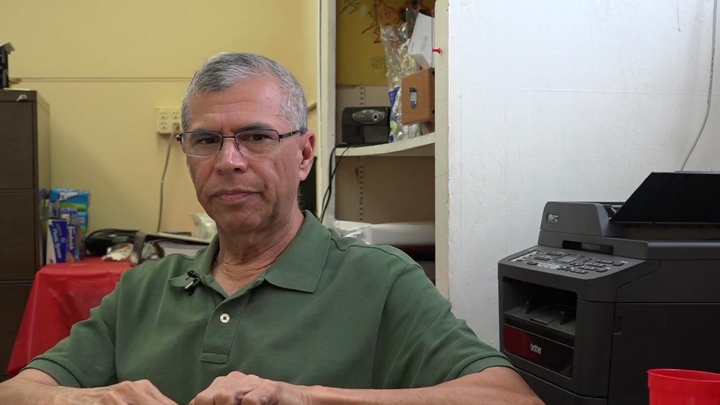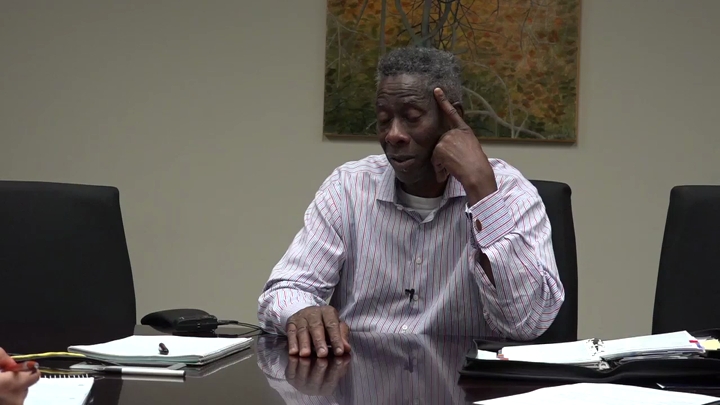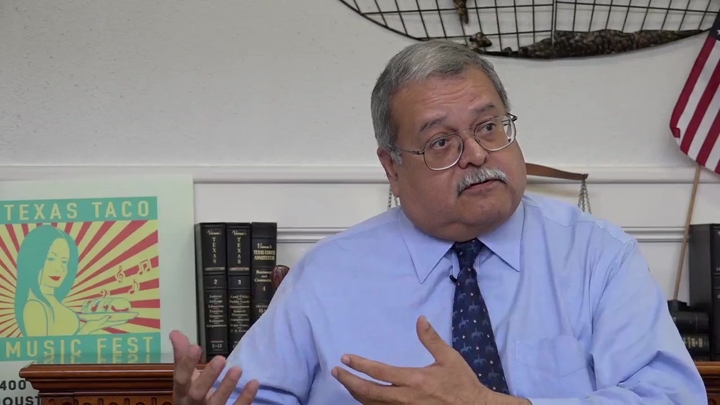Jimenez / Raza Unida Party, Part Two
sign up or sign in to add/edit transcript
Maria Jiménez: That is where we were. Being defeated all the time. This is a time where precinct dutches had real power and so they delivered the votes. If you happened to be a precinct dutch where people could not read you were very powerful. They could tell you that if they were to vote for this person, but if they were for the other candidate they would indicate the other candidate and people would vote. So, that happened. We tried that, Mawale pretended not to read and they told him to vote for Ben instead of for me. Then we tried complaining because there was a complaint system. They laughed at us and said, “Oh, we were all appointed by the democratic party. Too bad.” Interviewer: I want to ask you a couple of questions about that. What was your platform? Maria Jiménez: The platform was again very radical platform at the time. We wanted to form block committees to gather neighbors. So if you look at it that is what Cuba did [laughs] I do not think we were conscious of that but that is what we did. We wanted to form block committees to discuss the issues. Then would propose what the community wanted changed. We already knew we wanted bilingual education, and to see improvements in the condition of the neighborhood, not just education and employment. All of the things We usually talked about. Interviewer: Did you get any resistance from the Ben Reyes campaign? Maria Jiménez: Oh, yeah. We did get resistance. I mean our headquarters were shot at. Interviewer: Where were your headquarters? Maria Jiménez: On Canal. The party headquarters were on Harrisburg- because there were other candidates. I was not the only candidate. The party headquarters was on Harrisburg and my headquarters was on Canal. We were shot at. Our headquarters was shot at. People would spend all night putting up signs and by the next morning they were gone. So it was rough. Then some of their neighborhood people that were key in their campaign would call people to tell them I was a Communist and say they should not vote for me. It was what I called the rumor mill politics. So, they were pre-Tweets. So basically that is what they did. I remember this one elderly Anglo guy who lived on 74th and H who said he would vote for me. I went to see him a second time and he says, “Oh, I got a call from the Reyes campaign and what they said about you, blah, blah, blah.” So, we knew this was going on. They would put plants who reported back to their campaign to let them know what we were doing. Interviewer: Why did you run? Why were you given this opportunity? Maria Jiménez: I guess it was because of the work I did in the student association. People were aware that I could get things done. I was articulate, I was young, I could get things done. So, they had a profile already because of the stuff I did at the university. So, they proposed that I run. I did not want to run. I did not particularly like the idea of running. I saw it more as a discipline to the party and the need to organize the community. But, I did not want to run. The fact that I never ran for electoral office is because I never like electoral politics. It is not my cup of tea. I did not like it. I did not enjoy it. But it was a party decision and I fulfilled it because it was a party decision. Interviewer: Why do you not like electoral politics? Maria Jiménez: Because for me it was not – the fundamental work had to be done. I still do not get why it matters who gets into office, if the community is well organized and active, and pushing its demands on the political structure then they have to respond. It is independent of you is in there. In other words, it is not the top down, it is from the bottom up. So, where the effort should be spent is in building the bottom in order to have them be their own advocates and push whoever gets elected into fulfilling their needs.
| Interview | Interview with Maria Jimenez |
| Subjects | White Resistance to Civil Rights › White Resistance and Anti-Communism |
| Electoral Politics | |
| Electoral Politics › Raza Unida Party | |
| Electoral Politics › Election Campaign Strategies | |
| Electoral Politics › Election Violence | |
| Electoral Politics › Election Campaigns | |
| People | |
| Chicano Power › Chicano Power and Community Organizing | |
| Tags | Reyes, Ben |
| sign up or sign in to add/edit tags | |
| Interview date | 2016-06-13 |
| Interview source | CRBB Summer 2016 |
| Interviewees | Jimenez, Maria |
| Interviewers | Enriquez, Sandra |
| Rodriguez, Samantha | |
| Duration | 00:05:25 |
| Citation | "Raza Unida Party, Part Two," from Maria Jimenez oral history interview with Sandra Enriquez and Samantha Rodriguez, June 13, 2016, Houston, Civil Rights in Black and Brown Interview Database, https://crbb.tcu.edu/clips/4611/raza-unida-party-pt-2, accessed March 05, 2026 |


